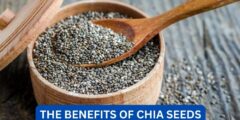Cabbage, a leafy green vegetable, is often overlooked in the world of superfoods. However, this humble vegetable is packed with essential nutrients and has numerous health benefits. It is a versatile ingredient that can be cooked in various ways and is a staple in many cuisines around the world. In this article, we will explore the benefits of eating cabbage and why it should be a regular part of your diet.
Contents
What is Cabbage?
Cabbage belongs to the Brassica family, which also includes other cruciferous vegetables such as broccoli, cauliflower, and kale. It is believed to have originated in Europe and Asia and has been cultivated for over 4,000 years. There are different varieties of cabbage, including green, red, and Savoy cabbage, each with its unique taste and texture.
One cup of chopped cabbage (89 grams) contains:
- Calories: 22
- Carbohydrates: 5 grams
- Fiber: 2 grams
- Protein: 1 gram
- Vitamin C: 54% of the RDI (Recommended Daily Intake)
- Vitamin K: 85% of the RDI
- Vitamin B6: 6% of the RDI
- Folate: 10% of the RDI
- Potassium: 4% of the RDI
- Manganese: 7% of the RDI
Cabbage is also a good source of other essential vitamins and minerals, including calcium, magnesium, and iron. It is low in calories and carbohydrates, making it an excellent choice for those trying to lose weight or manage their blood sugar levels.
Read:What are the benefits of pistachios?1. Rich in Antioxidants
Cabbage is a rich source of antioxidants, which are compounds that help protect our cells from damage caused by free radicals. Free radicals are unstable molecules that can cause oxidative stress, leading to chronic diseases such as cancer, heart disease, and Alzheimer’s.
One of the main antioxidants found in cabbage is vitamin C. It is a water-soluble vitamin that helps boost our immune system and promotes collagen production, which is essential for healthy skin and joints. Vitamin C also acts as an antioxidant by neutralizing free radicals and protecting our cells from damage.
Cabbage also contains other antioxidants, such as beta-carotene, lutein, and zeaxanthin, which are beneficial for eye health. These antioxidants help protect our eyes from age-related macular degeneration and cataracts.
2. Anti-inflammatory Properties
Inflammation is a natural response of our immune system to protect our body from infection and injury. However, chronic inflammation can lead to various health problems, including heart disease, diabetes, and arthritis.
Cabbage contains compounds called glucosinolates, which give it its distinctive smell and taste. These compounds have anti-inflammatory properties and may help reduce inflammation in the body. One study found that consuming cabbage juice helped reduce inflammation markers in patients with rheumatoid arthritis.
Read:What does dr pepper do to your stomach?In addition, cabbage is also a good source of omega-3 fatty acids, which are known for their anti-inflammatory effects. These fatty acids help reduce inflammation in the body and may help prevent chronic diseases.
3. May Help Prevent Cancer
Cabbage is a cruciferous vegetable, and studies have shown that consuming cruciferous vegetables may help reduce the risk of certain types of cancer. This is due to the presence of glucosinolates, which are broken down into compounds called isothiocyanates when we chew or digest them.
These compounds have been found to have anti-cancer properties and may help prevent the growth and spread of cancer cells. One study found that consuming cruciferous vegetables, including cabbage, was associated with a lower risk of lung, breast, and colon cancer.
In addition, cabbage is also a good source of sulforaphane, a compound that has been found to have anti-cancer properties. It helps activate enzymes in the body that can detoxify and eliminate potential carcinogens.
4. Good for Digestive Health
Cabbage is a good source of fiber, which is essential for a healthy digestive system. Fiber helps regulate bowel movements, prevents constipation, and promotes the growth of beneficial bacteria in our gut.
Read:what are the benefits of kratomIn addition, cabbage also contains a compound called glutamine, which has been found to have anti-inflammatory properties and may help improve the health of our gut lining. A healthy gut lining is crucial for proper digestion and absorption of nutrients.
Furthermore, cabbage is also a good source of probiotics, which are beneficial bacteria that help maintain a healthy balance of bacteria in our gut. These probiotics can help improve digestion, boost our immune system, and may even help reduce the risk of certain diseases.
5. May Help Lower Cholesterol Levels
High cholesterol levels can increase the risk of heart disease and stroke. However, incorporating cabbage into your diet may help lower cholesterol levels.
Cabbage contains a compound called choline, which has been found to help reduce cholesterol levels in the body. In addition, the fiber in cabbage can also help lower cholesterol levels by binding to bile acids in the gut and preventing them from being reabsorbed into the body.
One study found that consuming cabbage juice for eight weeks helped reduce LDL (bad) cholesterol levels and increase HDL (good) cholesterol levels in patients with high cholesterol.
6. Good for Bone Health
Cabbage is a good source of vitamin K, which is essential for bone health. Vitamin K helps regulate calcium levels in the body and is necessary for the production of osteocalcin, a protein that is essential for bone formation.
In addition, cabbage also contains other nutrients that are beneficial for bone health, such as calcium, magnesium, and manganese. These minerals help strengthen bones and may help prevent osteoporosis, a condition characterized by weak and brittle bones.
7. Versatile and Budget-Friendly Ingredient
Cabbage is a versatile ingredient that can be cooked in various ways. It can be eaten raw in salads, sautéed, steamed, or added to soups and stews. It is also a budget-friendly ingredient, making it an excellent choice for those on a tight budget.
Furthermore, cabbage can be stored for a long time in the refrigerator, making it a convenient option for meal planning. It can also be pickled or fermented, which not only extends its shelf life but also adds beneficial probiotics to your diet.
Conclusion:
Cabbage is a nutritional powerhouse that offers numerous health benefits. It is rich in antioxidants, has anti-inflammatory properties, and may help prevent cancer. It is also good for digestive health, may help lower cholesterol levels, and is beneficial for bone health. With its versatility and budget-friendly nature, cabbage is a must-have ingredient in your diet. So, next time you go grocery shopping, don’t forget to add this humble vegetable to your cart.









